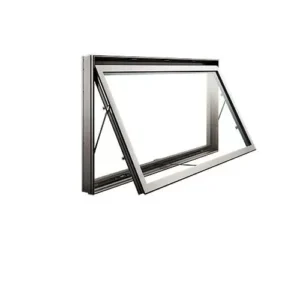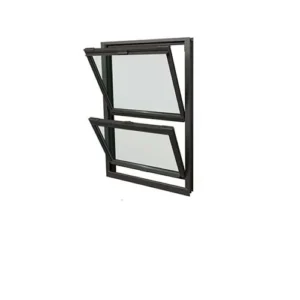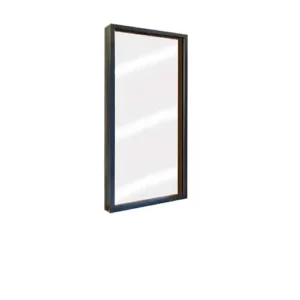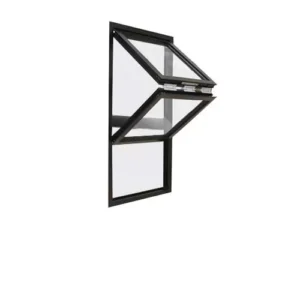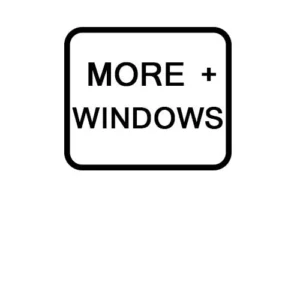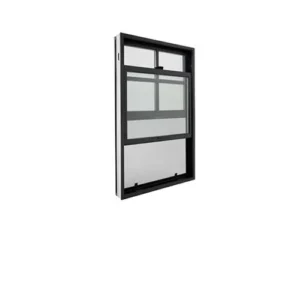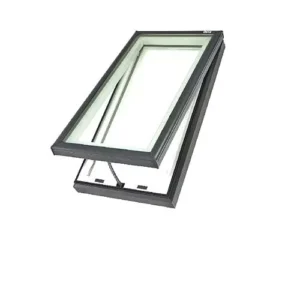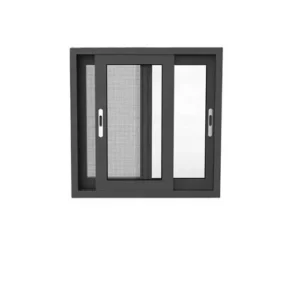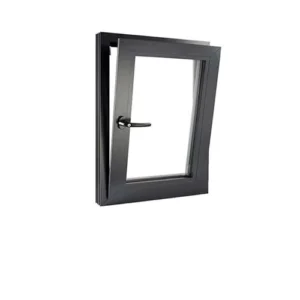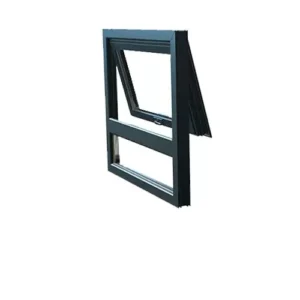ABOUT Aluminum SLIDING WINDOW FAQ
Sliding windows are not only ideal for modern buildings but are also favored by homeowners in older, heritage-style homes as they help maintain the mid-century aesthetic. These windows come in three common styles:
Single Slider Windows: Single slider windows typically feature one operable sash, while the other sash is stationary. The operable sash slides horizontally to open or close the window. This design is ideal for smaller spaces because it doesn’t require additional space to open, making it a great choice for areas with limited room.
Double Slider Windows: Double slider windows have two operable sashes, allowing both sashes to slide horizontally. This offers greater flexibility for ventilation, as you can open either side or both. These windows are commonly used in larger spaces where more air circulation or natural light is desired, as they allow for a wider opening.
Triple Slider Windows: Triple slider windows consist of three sashes, with two operable sashes and one stationary sash in the middle. These windows provide a larger opening area compared to double slider windows and are perfect for wider walls or larger rooms. They allow for increased airflow and better visibility, making them a popular choice for spacious rooms that require more light and ventilation.
These sliding window types are not only functional but also enhance the aesthetic value of a home. They’re particularly well-suited for heritage-style homes, offering a blend of classic charm and modern convenience.
Clean the Track: Make sure the track is free of dirt and debris. Use a vacuum or brush, and clean with a damp cloth if needed. Let it dry.
Check and Adjust Rollers: Inspect the rollers at the bottom of the window. Adjust the roller screws (clockwise to raise, counterclockwise to lower) for smoother sliding.
Check Alignment: Close the window and ensure it’s aligned properly. If misaligned, adjust the rollers to fix it.
Tighten Screws: Ensure all screws in the frame, track, and rollers are tight. Tighten any loose ones.
Check Weatherstripping: Inspect the weatherstripping around the window. Replace it if damaged to improve sealing.
Lubricate the Track and Rollers: Apply silicone or graphite lubricant to the track and rollers for smoother operation.
Test the Window: After adjustments, slide the window to ensure smooth movement without resistance.
These steps will help ensure your window slides smoothly and functions efficiently.
Yes, aluminum is a great choice for sliding patio doors. It’s lightweight, durable, and resistant to corrosion, making it ideal for outdoor use. Aluminum frames also allow for larger glass panels, enhancing natural light and aesthetics. Modern aluminum frames can offer good energy efficiency with thermal breaks.
Advantages of Aluminum:
- Lightweight and easy to install
- Durable and resistant to corrosion
- Low maintenance and long-lasting
- Slim design for larger glass areas
Disadvantages of Aluminum:
- Thermal conductivity: Can be less energy-efficient without thermal breaks
- Less strength than steel
Steel for Sliding Patio Doors:
- Stronger and more secure
- Requires more maintenance to prevent rust
- Heavier and bulkier than aluminum
Conclusion: Aluminum is ideal for a modern, low-maintenance, and weather-resistant option, while steel offers extra strength and security but requires more upkeep.
Yes, aluminum windows typically cost more than vinyl windows. On average, vinyl replacement windows are about 30% less expensive than comparable aluminum models. For example, six aluminum replacement windows may cost around $260, while vinyl windows would generally cost less.
The best lubricants for aluminum sliding windows are silicone-based sprays or PTFE (Teflon) lubricants. These options provide smooth sliding, reduce friction, and prevent wear and rust. Silicone spray is ideal for aluminum frames as it won’t attract dirt and debris, while PTFE lubricants offer long-lasting performance with minimal maintenance.
The lifespan of an aluminum window typically ranges from 20 to 40 years, depending on factors like maintenance, climate, and quality of installation. Aluminum windows are durable and resistant to rust, making them a long-lasting option when properly cared for.
Price Examples for Aluminium Windows:
- Tilt and Turn Window (1 glass pane): $22.00
- Top Hung Window (1 glass pane): $18.00
- Awning Window (1 glass pane): $12.00
- Fixed Window (1 glass pane): $17.00
- Folding Window (1 glass pane): $15.00
- Single Hung Window (1 glass pane): $15.00
- Skylight Window (1 glass pane): $12.00
- Double Hung Window (1 glass pane): $25.00
- Casement Window (1 glass pane): $22.00
- Sliding Window (1 glass pane): $22.00
These are general prices for aluminium windows with a single glass pane. Prices may vary depending on additional features or customization options.
The price depends on the type of glass you require. Please feel free to contact us for the latest quotation.
According to the U.S. Environmental Protection Agency (EPA),single-pane aluminum
windows are one of the least energy-efficient window types available. They allow up far
more heat transfer than double- or triple-paned, resulting in higher heating and cooling
bills
Replacing aluminum windows, especially single-pane ones, can indeed be a worthwhile investment for several reasons, primarily related to energy efficiency, comfort, and long-term savings. Here’s why:
1. Energy Efficiency
Single-pane aluminum windows are less energy-efficient because they allow more heat transfer, which means your heating and cooling systems have to work harder to maintain a consistent temperature. This leads to higher energy bills.
Double or triple-pane windows are designed to provide better insulation. The space between the panes (often filled with air or gas) significantly reduces heat transfer, helping to maintain indoor temperatures more effectively. Replacing single-pane aluminum windows with double or triple-pane models can drastically reduce your energy consumption.
2. Comfort and Noise Reduction
Newer windows, especially double or triple-pane ones, improve indoor comfort by reducing drafts, making your home feel warmer in the winter and cooler in the summer.
Double or triple-pane windows also have better sound insulation properties, which can be a benefit if you live in a noisy area.
3. Potential Cost Savings
While replacing aluminum windows can be an initial investment, the long-term savings on heating and cooling costs often offset the upfront costs. Over time, the energy savings can make the replacement cost worthwhile.
Additionally, energy-efficient windows can increase the value of your home, especially if you plan to sell in the future.
4. Environmental Benefits
By improving energy efficiency, you reduce the demand for heating and cooling, which in turn can help lower your carbon footprint. This aligns with energy conservation goals and reduces environmental impact.
5. Durability and Maintenance
Modern aluminum windows are more durable and require less maintenance than older models. They are less prone to issues like warping, rotting, or peeling compared to some other materials (like wood).
Many new aluminum windows come with thermal breaks and better weather seals, reducing condensation and improving the lifespan of the window.
Is it Worth Replacing?
Given the energy efficiency improvements, potential for lower utility bills, and enhanced comfort, replacing old aluminum windows with more energy-efficient options (like double or triple-pane windows) is generally considered a good investment. However, the decision depends on the specific condition of your windows, the cost of replacement, and the expected long-term savings.
If you are thinking about installing aluminum windows in your home, the cost will vary depending on a few factors. The window size, color choice and any hardware accessories you opt for will all impact the final price. Generally, you can expect to spend between $80 and $150 fully installed for an aluminum window.

